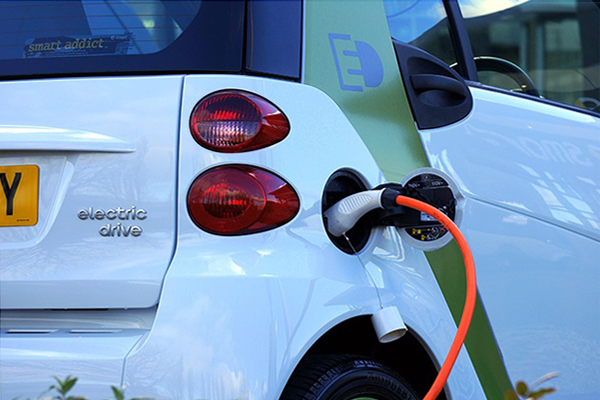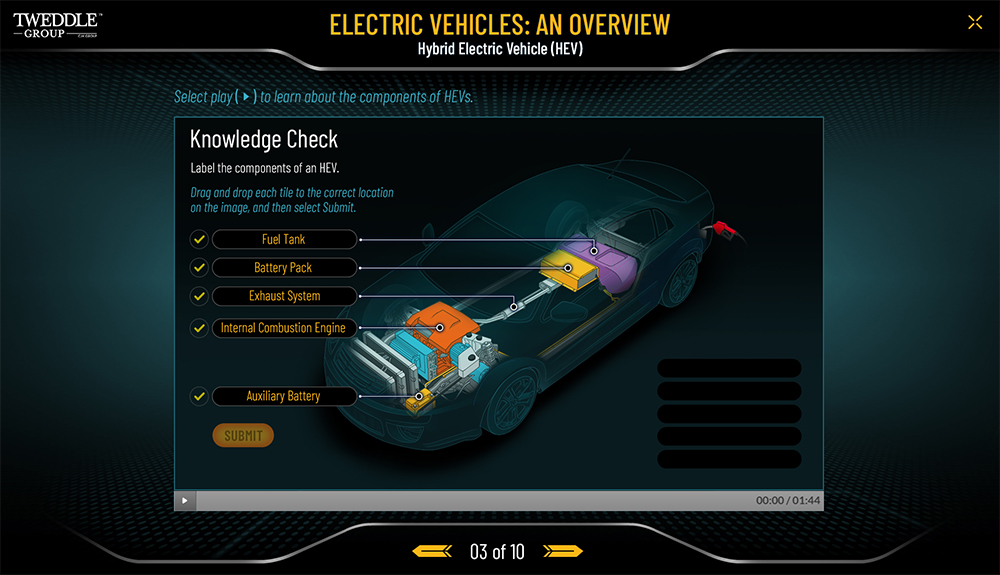Training for the Electric Vehicle Revolution

Based on current forecasts, the US, Asian, and European electric vehicle (EV) markets are expected to reach staggering figures of $137.43 billion, $2,688.23 billion, and $855.17, respectively, by 2028. Considering the policies and vehicle emission norms that governments are adopting in favor of electric vehicles, the projected growth comes as no surprise.
While EVs are the future of the automobile industry, many consumers, in the US and globally, have yet to fully comprehend the features and benefits of these vehicles. For instance, many have misconceptions about electric cars and their maintenance costs or are unaware of the models available. As a result, automobile manufacturers are looking to educate their workforce, technicians, dealers, and customers to facilitate and expand market adoption.
Background
The origins of the electric vehicle can be traced back to as early as the 1800s, when several innovators came up with some of the first basic versions of a battery-powered electric vehicle. However, Ford Motor Company’s Model T—launched in 1908—was sold at half the price, used a cheap fuel (gasoline), and was easily available. As a result, electric vehicles lost their momentum and consumers’ interest by 1912. While research and development for electric vehicles continued at a slow pace, gasoline-powered vehicles dominated the market over the next few decades.
The relatively recent resurgence of electric vehicles can be attributed to the:
- Increase in oil prices and shortage of gasoline that began during the 1970s and continues today
- Global acknowledgement of environmental concerns in the 1990s and early 2000s
- Implementation of government regulations about fuel emissions and other energy initiatives in the 2000s and 2010s
Emerging Technology
Currently, US automobile companies are using electric vehicle (EV) technology to manufacture three types of vehicles: hybrid electric vehicles (HEVs), plug-in hybrid electric vehicles (PHEVs), fuel cell electric vehicles (FCEVs), and battery electric vehicles (BEVs). HEVs and PHEVs use a blend of an electric motor and an internal combustion engine (ICE), and thus still depend on gasoline to an extent. On the other hand, FCEVS and BEVs—also known as all-electric vehicles—operate solely on electricity in the absence of an ICE. While FCEVs generate electricity with the help of the hydrogen (stored in their fuel cells), BEVs use the electricity made available by their batteries alone. However, the operation of both FCEVs as well as BEVs leads to zero tailpipe emissions.
Consumer Education
L&D teams can help automobile companies come up with simple learning solutions for potential customers. For instance, manufacturers can host short, animated videos that demonstrate the features and benefits of electric car models on their company websites. They can also create and host interactivities that highlight and provide comparisons across different electric car models. Such videos and interactivities can serve as marketing tools to introduce different models to the consumer.
Manufacturers can also provide interactive 3D versions of an EV car model that allows consumers to view it from all angles, interact with it, and view its specifications. Automobile companies can also follow in the footsteps of General Motors and offer an online platform—such as EV Live—that hosts a range of tutorials and live, one-on-one virtual interactions between EV experts and potential customers (individuals and businesses).
Such solutions can help potential buyers resolve their queries, gain valuable information about purchase and maintenance costs of electric vehicles, and become more familiar with EV technology. Potential buyers can also learn more about EV-specific concepts, such as the common types and levels of charging, EV terminology (like “regenerative braking” and “Miles per Gallon Equivalent”), and other aspects that include warranty, available incentives, service expenditure estimates, buying and leasing options.
 Technical Instruction
Technical Instruction
While automobile giants, such as Tesla, entered the electric vehicle market a while ago, many automobile companies are new to it. To make the most of EV technology, these companies need to empower, educate, and prepare their workforce—including technicians, engineers, fleet and facility managers, and retail staff—for the EV revolution. Technical personnel need to be upskilled and trained on new equipment that supports the manufacturing process of electric vehicles. For instance, companies could incorporate effective mixed reality (MR) training to help employees work with new equipment while being guided by overlaid virtual information. A self-paced online certification training program with a mix of interactive screens, animations, and assessments could also help such employees gain technical expertise in EV technology.
Employee Training
Similarly, retail staff of automobile companies and dealerships must be trained to help potential customers understand the features and benefits of electric car models. Interactive scenario-based animations could help retail sales people learn how to manage potential customers who have questions about electric vehicles as well as existing customers who may have complaints.
With goals like lower fuel emissions, environment protection, and sustainability, EV technology is only going to keep growing with time. As a result, the increase in the demand for electric vehicles, EV technicians, and related training programs is inevitable.
Recently, the Tweddle Group (a fellow CJK Group company)—a global leader in providing product support services to vehicle and equipment manufacturers—hosted a webinar that serves as a first-time buyer’s guide to EV. During the discussion, Ralph Pompea, the company’s Senior Global Director of Global Business Solutions, expressed his views on EV technology. According to him, “Electrification is here, the early adoption phase has ended. Everyone in the market for their next vehicle should take a good look at an EV and decide if it’s right for them.” His take on electric vehicles sums up the message that automobile companies around the world must pay heed to and act upon: the time to educate the market about electric vehicles is now.
To find out more about how KnowledgeWorks Global Ltd. can create effective learning solutions to educate your workforce and consumers about electric vehicles, please contact: info@kwglobal.com.

